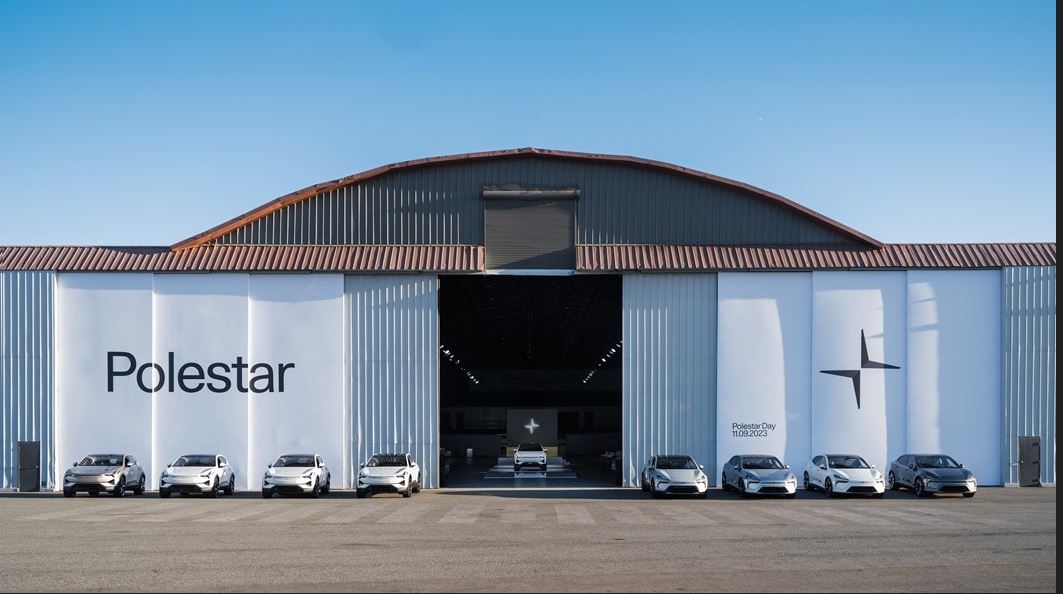Renault Korea has announced its plans to manufacture the upcoming electric vehicle, Polestar 4, at its plant in Busan starting in 2025. This collaboration between Renault Group and China's Geely Group has evolved from joint vehicle development to production.
The French automaker's Korean unit confirmed the production of the pure electric SUV by the second half of 2025 following an agreement reached between Polestar, Geely Holding, and Renault Korea, as per Korea Times.
Polestar 4 Production and Shareholding Strategy
Polestar, a joint venture between Geely and Volvo Cars that specializes in EVs, revealed that the Polestar 4 will be manufactured in China for the Chinese market. Meanwhile, the vehicles produced in Busan will be sold in both the Korean and North American markets, according to a press release by the Renault Group.
Renault Korea's Busan plant, employing around 2,000 workers, is strategically located near a port, facilitating the export of EVs. Remarkably, it is recognized as one of Renault's top-performing factories worldwide in terms of quality.
With Geely acquiring a 34.02 percent stake in Renault Korea last year, the cooperation between the two companies has flourished. In addition to the production of the Polestar 4, Renault Korea has plans to manufacture its hybrid electric SUV next year, based on a platform jointly developed by Volvo and Geely.
This collaborative endeavor signifies Renault Korea Motors' rejuvenation and ambitious vision for the future. The CEO of Renault Korea, Stephane Deblaise, expressed his gratitude to the Polestar brand for their trust and emphasized the potential for further opportunities with the strong shareholders, Renault Group and Geely Group.
The Next Step in Manufacturing Footprint
Polestar CEO, Thomas Ingenlath, expressed his satisfaction in diversifying the manufacturing footprint in partnership with Geely Holding and Renault Korea Motors. He commended Renault Korea for sharing their focus on quality and sustainability. This collaboration not only marks a significant milestone for the Busan plant but also reinforces the commitment to producing cutting-edge electric vehicles.
Renault Korea's Busan plant boasts a maximum annual production capacity of 300,000 units, although it has operated below this threshold for the past three years, with a production count of less than 200,000 units. Last year, the plant's production capacity increased with the introduction of the hybrid XM3. However, the specific production scale for the Polestar EV, scheduled for production in 2025, has not yet been disclosed.
Photo: Polestar Media Newsroom



 Trump Backs Nexstar–Tegna Merger Amid Shifting U.S. Media Landscape
Trump Backs Nexstar–Tegna Merger Amid Shifting U.S. Media Landscape  SpaceX Prioritizes Moon Mission Before Mars as Starship Development Accelerates
SpaceX Prioritizes Moon Mission Before Mars as Starship Development Accelerates  Rio Tinto Shares Hit Record High After Ending Glencore Merger Talks
Rio Tinto Shares Hit Record High After Ending Glencore Merger Talks  Ford and Geely Explore Strategic Manufacturing Partnership in Europe
Ford and Geely Explore Strategic Manufacturing Partnership in Europe  Baidu Approves $5 Billion Share Buyback and Plans First-Ever Dividend in 2026
Baidu Approves $5 Billion Share Buyback and Plans First-Ever Dividend in 2026  Hims & Hers Halts Compounded Semaglutide Pill After FDA Warning
Hims & Hers Halts Compounded Semaglutide Pill After FDA Warning  TrumpRx Website Launches to Offer Discounted Prescription Drugs for Cash-Paying Americans
TrumpRx Website Launches to Offer Discounted Prescription Drugs for Cash-Paying Americans  American Airlines CEO to Meet Pilots Union Amid Storm Response and Financial Concerns
American Airlines CEO to Meet Pilots Union Amid Storm Response and Financial Concerns  Toyota’s Surprise CEO Change Signals Strategic Shift Amid Global Auto Turmoil
Toyota’s Surprise CEO Change Signals Strategic Shift Amid Global Auto Turmoil  SpaceX Pushes for Early Stock Index Inclusion Ahead of Potential Record-Breaking IPO
SpaceX Pushes for Early Stock Index Inclusion Ahead of Potential Record-Breaking IPO  Instagram Outage Disrupts Thousands of U.S. Users
Instagram Outage Disrupts Thousands of U.S. Users  Prudential Financial Reports Higher Q4 Profit on Strong Underwriting and Investment Gains
Prudential Financial Reports Higher Q4 Profit on Strong Underwriting and Investment Gains  Nvidia, ByteDance, and the U.S.-China AI Chip Standoff Over H200 Exports
Nvidia, ByteDance, and the U.S.-China AI Chip Standoff Over H200 Exports  SoftBank Shares Slide After Arm Earnings Miss Fuels Tech Stock Sell-Off
SoftBank Shares Slide After Arm Earnings Miss Fuels Tech Stock Sell-Off  Washington Post Publisher Will Lewis Steps Down After Layoffs
Washington Post Publisher Will Lewis Steps Down After Layoffs  Amazon Stock Rebounds After Earnings as $200B Capex Plan Sparks AI Spending Debate
Amazon Stock Rebounds After Earnings as $200B Capex Plan Sparks AI Spending Debate 































